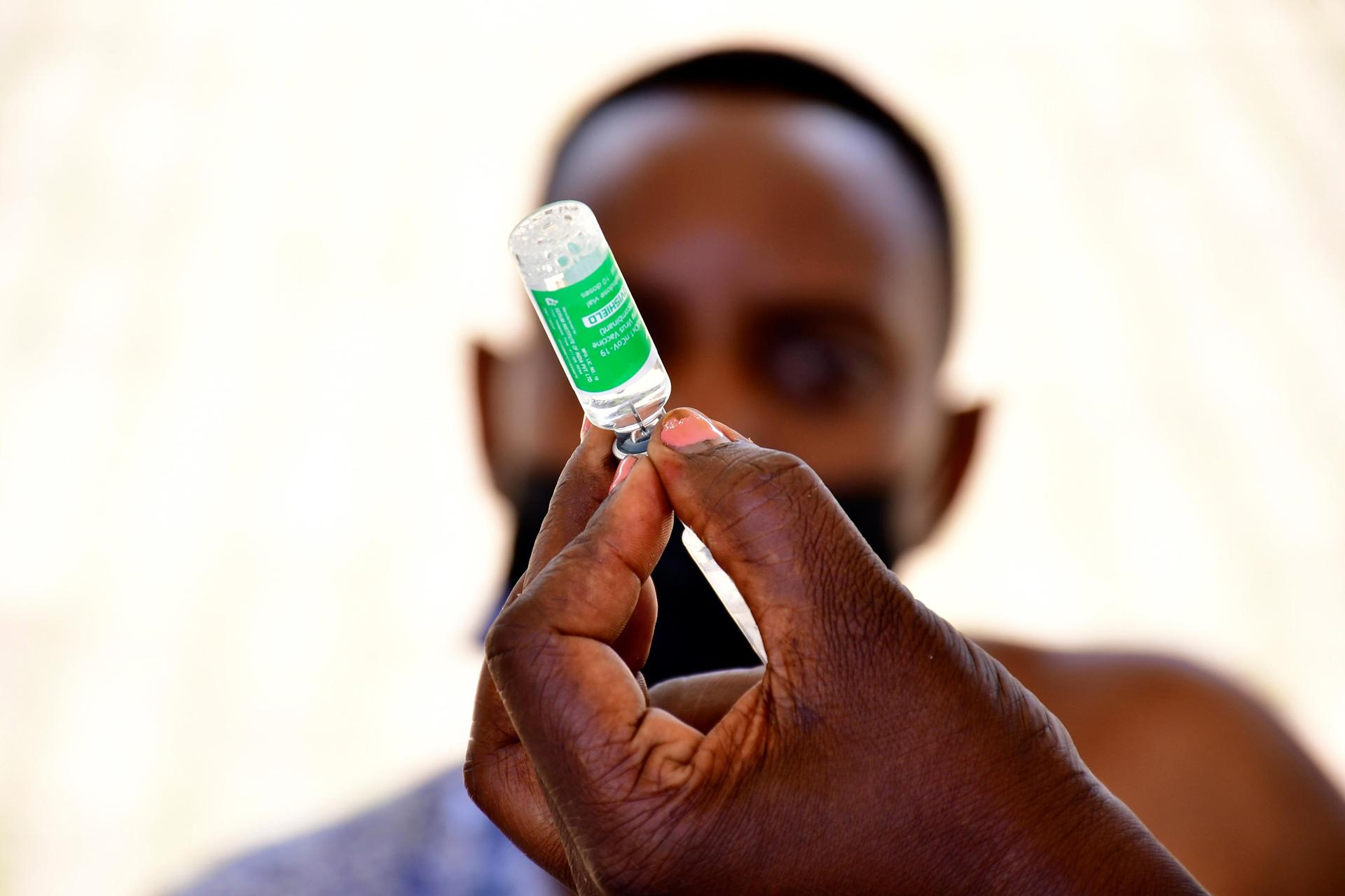Africa-Press – Uganda. The researchers, however, recommend that vaccinated persons to continue observing standard operating procedures for infection prevention.
A study conducted among 1,462 Covid-19 patients at Mulago hospital and Namboole stadium Covid-19 treatment centres indicates that a single shot of AstraZeneca vaccine reduces risk of death by half, while fully vaccinated patients didn’t die of the disease.
“Vaccinated patients [those who received one dose] were 45 percent less likely to die during hospitalisation. There was no death among fully vaccinated patients. Mortality was lower among partially vaccinated patients compared to those not vaccinated at all. Vaccination had no statistically significant impact on duration of hospitalisation and symptom resolution,” the report reads in part.
Researchers, in the copy of the research report, which Saturday Monitor has seen, say they collected data on vaccination status and treatment outcomes of patients admitted to the Covid-19 treatment units in Uganda during the period of May 1 to July 1.
Uganda has so far vaccinated 1,777,685 people and about 1.2 million have received only one dose, while 520,000 have been fully vaccinated since the exercise started on March 10. The virus has so far infected 122,591 and killed 3,137 people.
The study led by Dr Bruce Kirenga, the director of Makerere University Lung Institute, indicates that 6.5 percent (95) of the 1,462 Covid-19 patients had received at least one shot of the vaccine.
“At admission, the commonest symptoms were cough (83.6 percent) and shortness of breath (76.5 percent) and 51.8 percent required oxygen therapy,” the report reads further.
Of the 95 admitted, 12 were fully vaccinated more than 14 days before onset of symptoms or admission, while 10 had received two doses but developed symptoms, or were admitted within 14 days after vaccination.
The researchers said 54 of the patients had received one dose and had completed 14 days before they developed symptoms, or were admitted and 19 had received one dose and were still within 14 days by the time they developed symptoms or were admitted.
The government chief adviser on vaccine access, Prof David Sserwadda, told Saturday Monitor that infections and severe disease after Covid-19 vaccine shouldn’t cause alarm because there is no perfect vaccine.
“We have breakthrough infections in the country. But this shouldn’t surprise anybody because there is no vaccine which is 100 percent [effective in stopping disease],” he said.
The expert said whether or not someone will get infected or develop a severe disease even after the jab also depends on the genetic makeup of the recipient.
The low death rate among those vaccinated and zero death among those fully vaccinated, the researchers wrote in their recommendations, that there is need for “ramping up vaccination efforts, especially ensuring full vaccination.”
But cases of death in people who are vaccinated have been reported in foreign countries such as the US, which has vaccinated large numbers of their population, according to The New York Times, an American newspaper.
Some Ugandan scientists think the number of people vaccinated is still rather low to conclude that the vaccinated people don’t die.
“Fully vaccinated patients fell sick to the extent of requiring care, signifying need for vaccinated persons to continue observing standard operating procedures for infection prevention,” the Makerere University researchers wrote.
Prof Sserwadda said unlike the developed countries where there are plans to give a third dose to boost immunity of vaccine recipients, Uganda may not do so in the near future because of scarcity of the jabs.
The researchers
Dr Bruce Kirenga, Prof Pauline Byakika, Dr Misaki Wayengera, Col Dr Henry Kyobe, Dr Rosemary Byanyima, Dr Ivan Kisule, Dr Winters Muttamba, Dr Ivan Kimuli, Dr Loryndah Namakula, Dr Eliya Mwesigwa, Dr Hellen Aanyu, Dr Alex Kayongo, Mr Rogers Sekibira, Mr Simon Mugambe, and Dr Levicatus Mugenyi.






